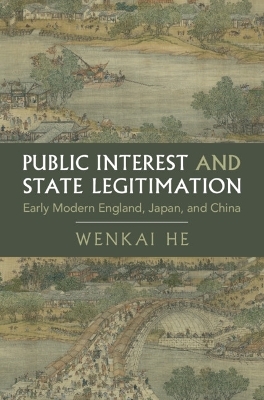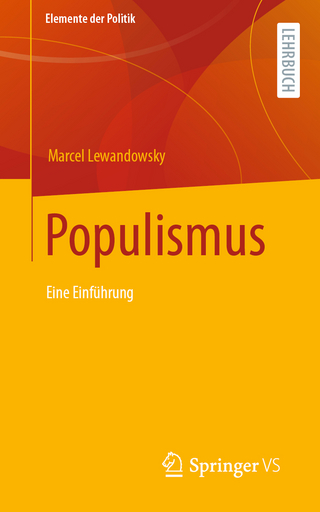
Public Interest and State Legitimation
Early Modern England, Japan, and China
Seiten
2023
Cambridge University Press (Verlag)
978-1-009-33451-8 (ISBN)
Cambridge University Press (Verlag)
978-1-009-33451-8 (ISBN)
Safeguarding public interest was vital to early modern state legitimacy in Western Europe and East Asia. Wenkai He identifies similar patterns in state-society interactions surrounding public goods provision and explores how conflicts over public interest led to calls for fundamental political change and to modern representative politics.
How were state formation and early modern politics shaped by the state's proclaimed obligation to domestic welfare? Drawing on a wide range of historical scholarship and primary sources, this book demonstrates that a public interest-based discourse of state legitimation was common to early modern England, Japan, and China. This normative platform served as a shared basis on which state and society could negotiate and collaborate over how to attain good governance through providing public goods such as famine relief and infrastructural facilities. The terms of state legitimacy opened a limited yet significant political space for the ruled. Through petitioning and protests, subordinates could demand that the state fulfil its publicly proclaimed duty and redress welfare grievances. Conflicts among diverse dimensions of public interest mobilized cross-regional and cross-sectoral collective petitions; justified by the same norms of state legitimacy, these petitions called for fundamental political reforms and transformed the nature of politics.
How were state formation and early modern politics shaped by the state's proclaimed obligation to domestic welfare? Drawing on a wide range of historical scholarship and primary sources, this book demonstrates that a public interest-based discourse of state legitimation was common to early modern England, Japan, and China. This normative platform served as a shared basis on which state and society could negotiate and collaborate over how to attain good governance through providing public goods such as famine relief and infrastructural facilities. The terms of state legitimacy opened a limited yet significant political space for the ruled. Through petitioning and protests, subordinates could demand that the state fulfil its publicly proclaimed duty and redress welfare grievances. Conflicts among diverse dimensions of public interest mobilized cross-regional and cross-sectoral collective petitions; justified by the same norms of state legitimacy, these petitions called for fundamental political reforms and transformed the nature of politics.
Wenkai He is Associate Professor in the Division of Social Science at the Hong Kong University of Science and Technology.
Introduction; Part I: 1. Legitimacy and resilience of the early modern state; 2. State-society collaboration against subsistence crisis; 3. Financing public infrastructure; 4. The negotiation of state and society over redress of grievances; Part II. Prologue: Limits to Early Modern State Resilience: 5. A political 'great divergence': England (1640–1780), Japan (1853–1895) and China (1840–1911); Conclusion: toward a contextualized comparative historical analysis.
| Erscheinungsdatum | 10.10.2023 |
|---|---|
| Reihe/Serie | Cambridge Studies in Historical Sociology |
| Zusatzinfo | Worked examples or Exercises |
| Verlagsort | Cambridge |
| Sprache | englisch |
| Maße | 158 x 235 mm |
| Gewicht | 610 g |
| Themenwelt | Sozialwissenschaften ► Politik / Verwaltung ► Vergleichende Politikwissenschaften |
| Sozialwissenschaften ► Soziologie | |
| Wirtschaft ► Volkswirtschaftslehre | |
| ISBN-10 | 1-009-33451-4 / 1009334514 |
| ISBN-13 | 978-1-009-33451-8 / 9781009334518 |
| Zustand | Neuware |
| Haben Sie eine Frage zum Produkt? |
Mehr entdecken
aus dem Bereich
aus dem Bereich
Geschichte, Parteistruktur, Radikalisierung
Buch | Softcover (2024)
UTB (Verlag)
27,90 €


